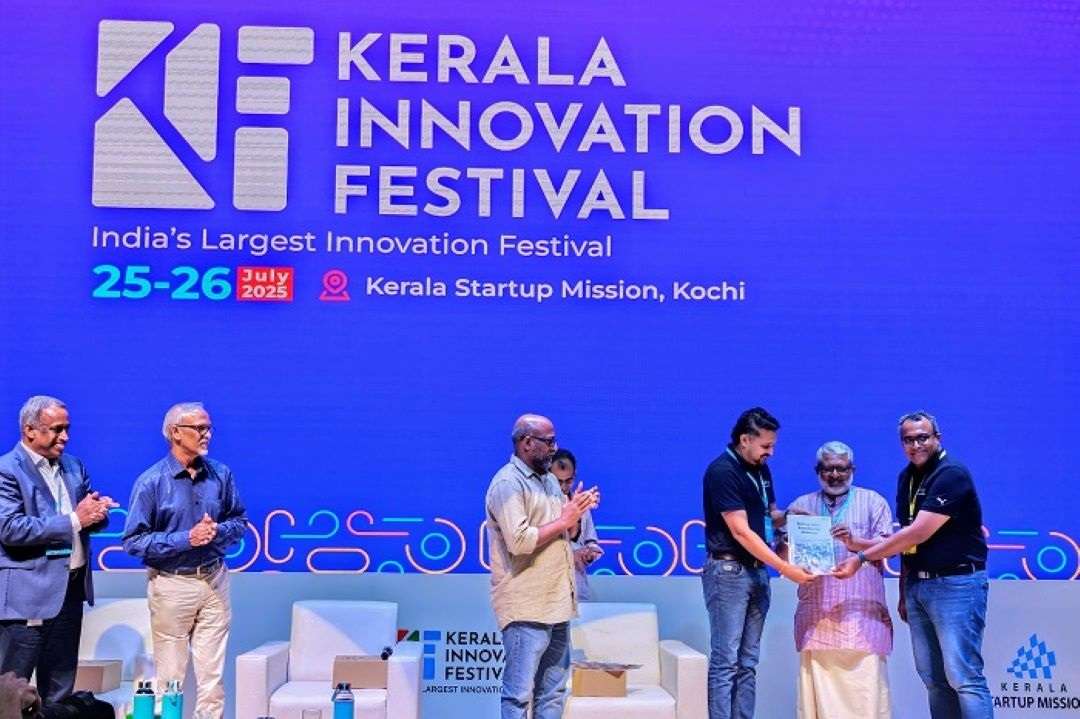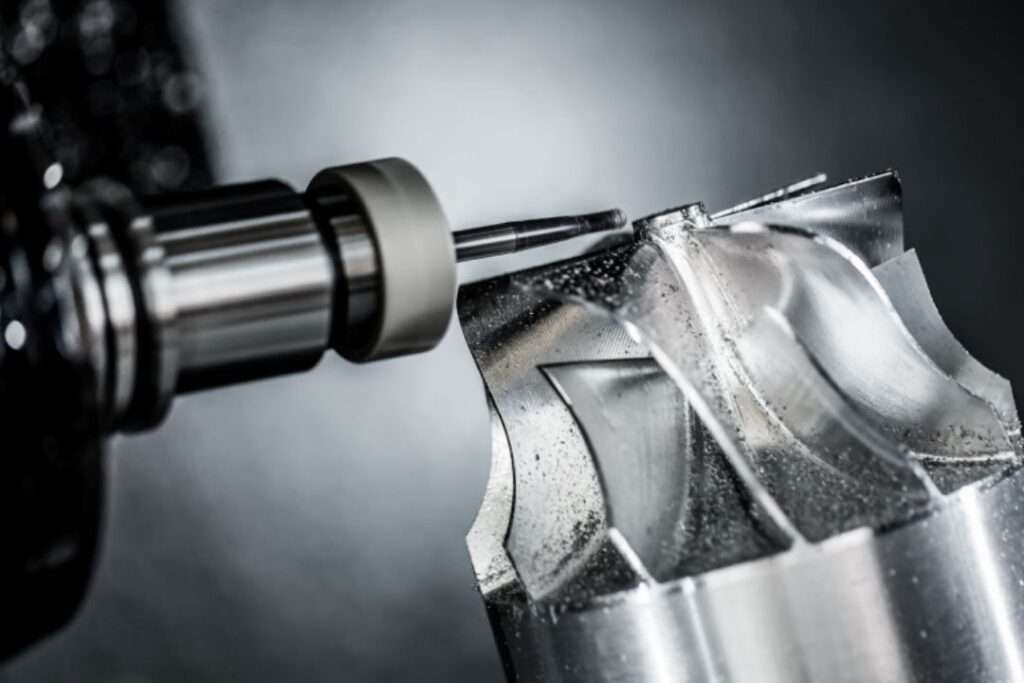Venttup, an emerging B2B startup focused on indigenising manufacturing and advancing new part development, unveiled its whitepaper titled “Building India’s Manufacturing Momentum” at the Kerala Innovation Festival in Kochi. The launch was attended by prominent industry leaders, policymakers, professors, and mentors, with the first copy of the whitepaper being presented to key figures including Mamatha Venkatesh, Head of Start-up India, and Dr Lida Jacob, IAS.
Founded by seasoned professionals from companies like Hitachi Energy, Siemens Energy, L&T, and Kalpataru Power, Venttup’s leadership team—Sandeep Nair (Co-founder & CEO), M Wasim Ankli (Co-founder & COO), and Joseph Panakkal (Co-founder & CMO)—drew on extensive industry experience and insights from manufacturing experts to create the whitepaper.
Venttup is dedicated to promoting localization and sustainability in India’s manufacturing ecosystem. The company works closely with large and medium-sized enterprises to develop high-quality, locally-sourced components, from prototypes to mass production. The firm specializes in producing complex mechanical, electrical, and electronic parts for industries such as Energy, Electric Vehicles (EV), Aerospace, and Defense. Venttup’s vision is to position India as a self-reliant hub for manufacturing, offering global buyers reliable and sustainable components.
Sandeep Nair, CEO of Venttup, shared his thoughts on India’s manufacturing challenges and opportunities: “India’s manufacturing sector is largely driven by MSMEs (Micro, Small, and Medium Enterprises), which face obstacles like limited project management skills, cash flow constraints, and outdated technology. While government policies are encouraging manufacturing, there’s a clear need for the private sector to collaborate with the government and other stakeholders to position India as a global manufacturing leader. This whitepaper highlights the areas where India can leverage its strengths—its workforce, expertise, and technological potential—to become a preferred destination for global manufacturers.”
Bhaskar Majumdar, Managing Partner at Unicorn India Ventures, expressed confidence in India’s manufacturing future: “India’s ability to transform into a global manufacturing hub is undeniable. Our investments in Venttup and other engineering startups reflect our belief that India can become a strong alternative to China in manufacturing. Key findings from the whitepaper include the rise of MaaS (Manufacturing as a Service) companies, the growing interest from global aerospace companies to establish manufacturing operations in India, and the shift towards a ‘China + 1’ strategy that is benefiting India’s manufacturing sector.”
MaaS, or cloud manufacturing, could revolutionize the way global buyers interact with India’s MSMEs. Currently, MSMEs contribute to 45% of India’s exports, but many face challenges due to outdated technology, lack of project management skills, and underutilized capacity. MaaS companies bridge this gap by facilitating connections between global buyers and Indian MSMEs, providing a much-needed platform for these small-scale manufacturers to scale up and integrate with global supply chains.
India is poised to become a key player in the global aircraft component manufacturing market, with an estimated value of $29.5 billion by 2033. Government initiatives like Make in India and Atmanirbhar Bharat are driving SMEs to invest in specialized manufacturing, including precision engineering, composites, and semiconductors. Global giants such as Airbus and Boeing are partnering with Indian companies like Mahindra and Tata to establish manufacturing bases in the country, further cementing India’s position in the aerospace supply chain.
India has made significant strides in fostering a favorable manufacturing environment. Initiatives such as the Production-Linked Incentive (PLI) scheme have played a crucial role in attracting global manufacturers to India. Additionally, India’s efforts to de-risk the global supply chain by positioning itself as a China + 1 manufacturing hub post-pandemic further highlight the country’s potential for growth.
India is in a unique position to emerge as a global leader in intelligent manufacturing. With its robust tech services industry, demographic dividend, and increasing adoption of advanced technologies such as AI, IoT, robotics, and quantum computing, the country can become a hub for innovation-driven manufacturing. The whitepaper offers several key recommendations:
Venttup’s whitepaper outlines a strategic framework for transforming India into a global manufacturing powerhouse. A key recommendation is the development of sector-specific industrial clusters dedicated to high-potential areas such as energy, electric vehicles (EVs), semiconductors, and precision engineering. These clusters should be designed as integrated ecosystems that bring together suppliers, logistics partners, and manufacturers, enabling seamless end-to-end production and improving overall efficiency and competitiveness.
Equally important is the focus on workforce development. India’s Industrial Training Institutes (ITIs) must undergo a significant overhaul to align their curricula with modern industry requirements. The whitepaper emphasizes the need for stronger public-private partnerships (PPPs) and expanded apprenticeship programs to create Centers of Excellence that nurture expertise in high-demand areas such as robotics, CNC operations, and smart manufacturing technologies.
To stay competitive in the global market, the adoption of Industry 4.0 technologies is imperative. Government support through targeted incentives and subsidies can help micro, small, and medium enterprises (MSMEs) embrace digital transformation, including automation, data analytics, and advanced digital tools. Additionally, a sharp increase in research and development (R&D) spending is essential. With India currently investing only 0.7% of its GDP in R&D compared to China’s 2.4%, strengthening the innovation ecosystem will be crucial to support sustainable industrial growth.
Overall, Venttup’s whitepaper presents a compelling vision for India’s manufacturing future—one rooted in specialization, skill development, digital innovation, and collaborative ecosystems. By capitalizing on these strategic priorities, India has the potential to build a resilient, future-ready manufacturing sector that not only meets global demand but also drives long-term economic growth.








